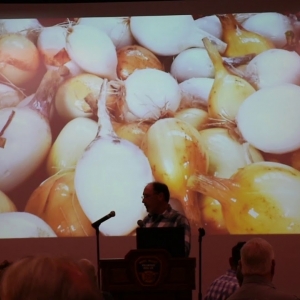Other Ag News: USDA Staffing Crisis: Legal Oversight Cuts Undermine Fairness and Accountability
Several offices within the United States Department of Agriculture (USDA) provide legal guidance, oversight, and accountability for actions the Department takes, and these offices have endured significant staff losses in 2025. Their work, though often invisible to the public, is essential for ensuring that USDA follows its own rules and those set by Congress. It makes the Department transparent, accountable to the public for its decisions, and ensures it treats farmers and other stakeholders fairly. The major staff losses these offices are experiencing threaten that work.
This post is the sixth in our ongoing series on the staffing crisis at USDA. It examines the massive cuts to legal oversight offices within the Department including the National Appeals Division (NAD), the Office of the Assistant Secretary for Civil Rights (OASCR), the Office of the General Counsel (OGC), and the Office of the Inspector General (OIG) and the impacts of the USDA’s planned reorganization. Together, these agencies provide different aspects of essential legal oversight and guidance for USDA and their staffing levels have been gutted in 2025.
The National Sustainable Agriculture Coalition (NSAC) continues to call for long-term adequate USDA staffing levels and the opportunity for stakeholders to provide meaningful guidance on the proposed reorganization. Read NSAC’s comment on the proposed reorganization here.
Steep Declines Across Key OfficesWhile each oversight office has a unique role and responsibilities within USDA, together they provide the legal structure and guidance needed to ensure that the Department and its staff function legally and ethically. The NAD (part of the Office of Hearings and Appeals) conducts impartial administrative appeals hearings for program decisions made by several USDA agencies. NAD is where an appeal would be handled if, for instance, a farmer believed that their conservation contract was unfairly terminated. OASCR ensures that both USDA stakeholders and employees are treated fairly and in accordance with federal civil rights laws. Any stakeholder or employee who believes that they have experienced discrimination or unfair treatment from a USDA agency or staff member can file a complaint with the OASCR, which will investigate and take appropriate actions, if needed. The OGC is an independent legal office within USDA that provides legal guidance to the Secretary of Agriculture and department staff. OGC provides guidance to ensure that all USDA programs and activities comply with federal laws and regulations. The OIG is an independent agency within the Department responsible for auditing agencies and investigating allegations of fraud, waste, or abuse within USDA agencies.
These four legal oversight offices have seen significant staff losses in 2025. Each of these offices have smaller staffs than other USDA agencies and therefore have been particularly vulnerable to recent staff cuts. The hardest hit office has been OASCR, which has lost 33% of its staff since January 2025. The relatively small office (150 employees in September 2024, according to the Office of Personnel Management (OPM)) lost 47 employees to the Deferred Resignation Program (DRP) and an additional 2 staff to other separations between January and March 2025. The DRP was a program created by the Department of Government Efficiency (DOGE) to cut federal staffing numbers by offering incentives for employees to resign. Separations can include firing, quitting, retiring, transferring to another agency, or other separation from an agency. The figure below shows the percentage of employees lost from each agency in 2025, including both the number who accepted the DRP and those who had other separations between January and March 2025.
Figure 1: Staff Lost to Both DRP and Separations (January-March 2025)
Separations data from OPM Losses Threaten Unfair Treatment and DelaysEach legal office at the USDA provides a different aspect of essential legal oversight and guidance to the Department and its agencies. Staff losses at these offices will ripple throughout all agencies of USDA and threaten the Department’s ability to serve all farmers and stakeholders fairly.
The NAD oversees administrative appeals that farmers and other stakeholders may file when they disagree with decisions made by certain USDA agencies. In 2025, the NAD caseload has been exceptionally high due to the unprecedented number of signed agreements USDA has terminated. For example, in April 2025, USDA abruptly terminated over one hundred agreements under the Partnerships for Climate Smart Commodities program, many of which appealed to the NAD. The NAD must hear each of these appeals, review the appropriateness of the decisions, and issue a decision. Access to fair and timely appeals is essential for program accountability and farmer trust. Fewer staff at NAD means higher case loads and longer wait times for resolution. These delays severely decrease the efficacy of this important avenue to ensure fairness for farmers; who may be irrevocably harmed by an agency action if its reversal is unnecessarily delayed.
Losses to the OASCR are particularly troubling given that USDA has a well-documented history of civil rights violations. Perhaps most notably, the Farm Service Agency (FSA) was found to have discriminated against Black farmers in allocating farm loans and disaster payments in the Pigford lawsuit, settled in 1999 with USDA agreeing to pay more than $1 billion to complainants. Congress also authorized an additional $1 billion in payments to Black farmers for discrimination in 2010, a settlement often called Pigford II.
OASCR is responsible for preventing – through training and oversight – these kinds of civil rights violations and for investigating and resolving complaints when they arise. OIG has frequently found that OASCR takes an excessive amount of time to process claims of discrimination and recommended increased staffing in OASCR. Higher OASCR staffing levels and funding was also one of the major recommendations from the USDA Equity Commission – which have now been scrubbed from all USDA websites – to ensure that they can process all civil rights complaints in a timely manner. These recent staff losses fly directly in the face of this and other recommendations to keep OASCR and legal offices adequately staffed.
OGC attorneys are the chief legal USDA officers. Fewer attorneys at OGC means that all processes at the Department will be slowed and the effects will ripple into all USDA agencies. Firstly, OGC attorneys advise USDA leadership on federal laws and regulations and represent USDA in court and administrative proceedings, defending agency actions and enforcing USDA regulations. With nearly 20% fewer OGC attorneys, OGC attorneys will be less available to enforce USDA regulations and staff will be stretched thin trying to review regulations and policies to ensure that they are legally sound. This will likely delay program revisions across all USDA agencies and increase the risk that USDA may adopt policies that do not comply with federal law. Ultimately, fewer OGC attorneys threatens all USDA programs and policies.
Finally, OIG is an independent, non-partisan oversight body that promotes accountability and efficiency within USDA. OIG ensures that all of the other USDA agencies are operating effectively and efficiently and they investigate allegations of fraud, waste, and abuse. While OIG has seen the smallest number of staff losses, any losses to this office pose a major threat to their ability to provide essential watchdog services. Notably, in January 2025, President Trump fired USDA’s Inspector General (IG), the head of OIG, along with the IGs from sixteen other agencies. Ultimately, a federal judge found this firing to be illegal but stopped short of reinstating the IG. These disruptions to OIG and OIG staffing are deeply concerning. Without a strong watchdog, even well-intentioned reforms can falter.
Every lost staff member takes with them accrued institutional knowledge and experience. The staff from legal agencies who separated from the Department between January and March 2025 had an average of 23 years of experience, according to data from OPM, and 32% of separated staff held a doctorate or the most advanced degree in their field, likely a Doctorate of Jurisprudence (JD), the degree held by attorneys. Staff in these legal offices are highly skilled with specialized knowledge that is not easily replaced. Every loss represents lost institutional knowledge that helps USDA better serve farmers and communities.
Reorganization Risks Deepening the CrisisExtensive staff losses at USDA legal offices in 2025 have already threatened basic fairness and transparency. USDA’s planned reorganization will further exacerbate these losses. On July 24, 2025, USDA issued a memo detailing a planned reorganization drafted without input from farmers or other stakeholders. The USDA reorganization plan includes major changes including consolidating all civil rights functions into OASCR and consolidating all Freedom of Information Act (FOIA) management into OGC. These changes would significantly increase the responsibilities of those offices at the very time that they are experiencing unprecedented staffing losses. The planned shift of many USDA offices outside of the Washington, DC metro area also threatens to exacerbate staff losses as the Secretary of Agriculture Brooke Rollins expects up to half of the Department’s DC area staff to leave the agency due to relocation. How will the OASCR with 33% fewer and OGC with 19% fewer employees, plus additional losses due to potential relocation, manage their increased responsibilities? Staff that are already stretched thin will be further burdened and the whole system of fairness for farmers will falter.
Rebuilding Capacity Must Be the PriorityThese offices – the National Appeals Division, the Office of the Assistant Secretary for Civil Rights, Office of the General Counsel, and Office of the Inspector General – uphold the rule of law within USDA. Their staffing losses threaten basic fairness, transparency, and due process at the “People’s Department.” Behind every percentage point of lost staff is a farmer waiting longer for their justice, a complaint left uninvestigated, or a new regulation left in limbo. Together these offices provide the legal backbone of USDA and staff losses that will only be exacerbated by the planned reorganization undermine the functioning of the Department and essential trust in government.
NSAC calls for the immediate restoration of staffing for USDA’s legal and oversight offices, as well as transparency and stakeholder input for both the staffing plans and the proposed reorganization. USDA needs a long-term staffing strategy that better supports the mission of the Department and centers on fairness and transparency.
The post USDA Staffing Crisis: Legal Oversight Cuts Undermine Fairness and Accountability appeared first on National Sustainable Agriculture Coalition.
Signup for the Ag Newsletter
Get the freshest farm news, events and updates from in and around Cattaraugus County, NY at least once a month! Go signup!
Other ways to stay connected:
Get Involved in Farming
Resources for Starting a Farm in Cattaraugus County
Profile of Cattaraugus County soils
Agriculture Career Exploration
Questions about farming? Find out Who to Call











